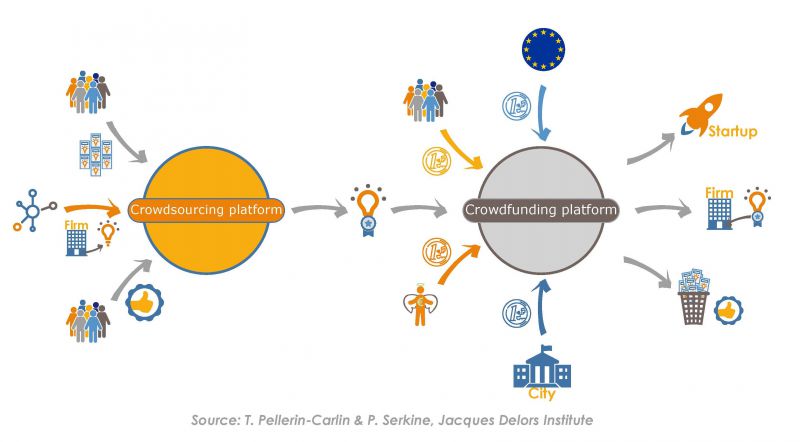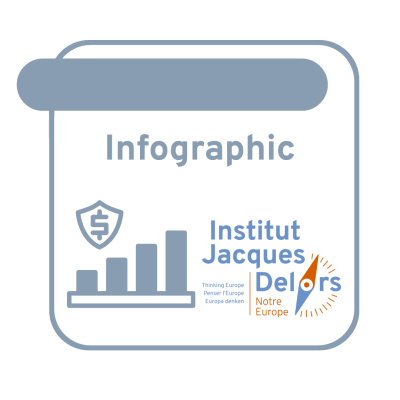From distraction to action – towards a bold Energy Union Innovation Strategy
Europe is at a crossroads of crisis: representative democracy, purpose of the European Union, climate change and a poisonous definition of competitiveness. In this context, this policy-paper explores how the EU can partially tackle all those challenges with its upcoming Energy Union Research Innovation and Competitiveness Strategy.

With its Energy Union Research Innovation and Competitiveness Strategy (EURICS), the EU can kill three birds with one innovative stone: to boost its competitiveness, Europe should become the global provider of low-carbon solutions, an objective best achieved democratically – with citizens at the centre and in the driving seat of Innovation. To do this, this policy paper by Thomas Pellerin-Carlin, research fellow at the Jacques Delors Institute and Pierre Serkine, End-User Architect at KIC InnoEnergy, argues that:
- Europe needs a renewed approach to competitiveness and put innovation at its core.
- Innovation is much more than technology. EURICS thus needs to embrace all human and social aspects of how people produce, consume and use energy. It should foster the appropriation of energy, integrate social sciences, valorise maintainers and promote frugal innovation.
- The solutions for a carbon-neutral economy and energy system stem from public-private cooperation, EURICS should also seek to transform conservative business into energy transition tigers. This notably involves to complete a cultural paradigm shift: demystify failure and unleash the entrepreneurship potential lying in researchers and employees.
- In a post-Paris world, the EU must do more to support energy-climate research. It can for instance create the European Climate Energy Labs: an interdisciplinary basic and applied research centre based on a single location to foster the development of disruptive technologies and ideas enabling the global transition towards a carbon-neutral society in this century.
- Innovation is more legitimate when it is democratic. The EU should therefore create a citizen-based instrument to steer European energy innovation: a digital platform where innovators and citizens can co-create innovations that are democratically selected, and financed by citizens, business angels, local communities and the EU. On this platform, EU budget allocation would be very simple: where an EU citizen invests one euro, the EU invests one euro. Supported projects can then become a start-up or an intrapreneurship project.





